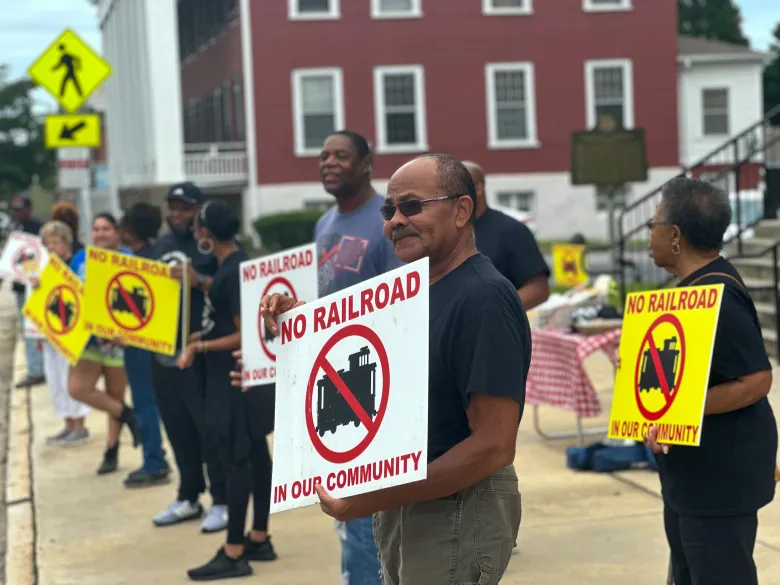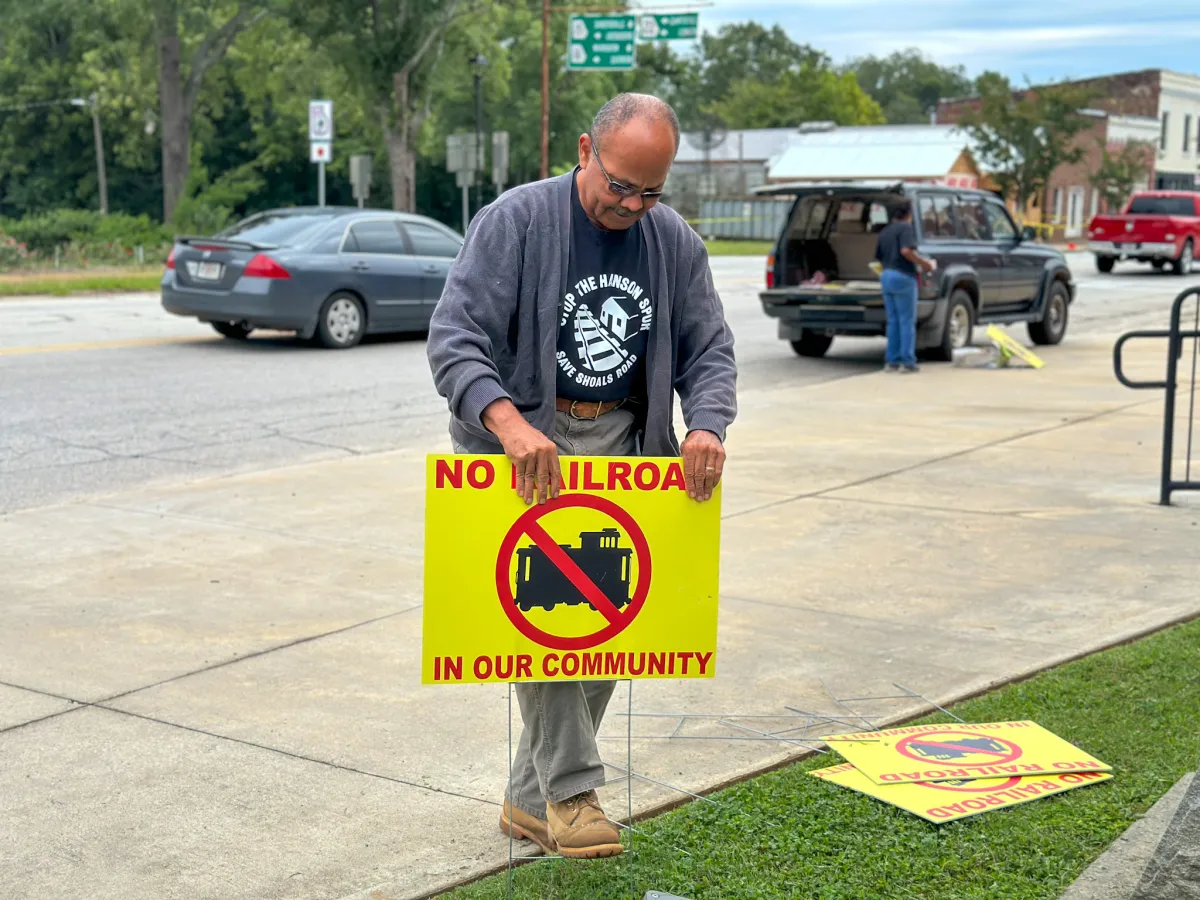Residents of Sparta, Georgia, are standing their ground against the Sandersville Railroad’s plans to construct a rail line near their homes, despite a recent setback in a state hearing.
The railroad’s proposal to build a four-mile rail line through the Shoals Road area in Hancock County has sparked concern among residents, including Don Garrett Sr. and his family, who have deep roots in the community spanning over 200 years.
The construction of the rail line could potentially decrease property values in the area, impacting not only the Garretts but also other homeowners. Furthermore, the disruption caused by the construction and the presence of the railroad could pose challenges for Garrett’s son, a retired veteran dealing with PTSD.
The dispute stems from the railroad’s assertion of eminent domain, which allows it to acquire private property for public use.
However, opponents argue that the railroad’s intentions are more aligned with private interests, particularly those of companies seeking to bypass existing trade routes for cost-saving purposes.
Despite a hearing officer’s ruling in favor of the railroad’s plans, residents and their legal representatives remain steadfast in their opposition.
They assert that Georgia law provides additional protections for private property rights, which they believe were not adequately considered in the decision-making process.

In response to the setback, Institute for Justice Attorney Bill Mauer emphasized the importance of preserving family heritage and vowed to continue challenging the railroad’s actions.
The residents plan to appeal the decision to the commission, signaling their determination to protect their homes and community from what they perceive as unjust encroachment.
Related Articles:
- Digital Envoy Acquires Location Sciences Measurement Technology!
- Florida Drivers to Receive Toll Relief: Not a Joke!
- Explore Detailed Solar Eclipse Information for Any Location in Texas
In contrast, the Sandersville Railroad defends its project, emphasizing its potential economic benefits for the region. The company highlights the job opportunities and economic growth that the rail line could bring, while also assuring measures to minimize its impact on local residents.
Despite the railroad’s reassurances, residents remain resolute in their opposition, underscoring the deeply rooted attachment to their land and the values it represents.
As the legal battle unfolds, the outcome will not only affect the immediate stakeholders but also serve as a test of the balance between private property rights and economic development in the region.







+ There are no comments
Add yours